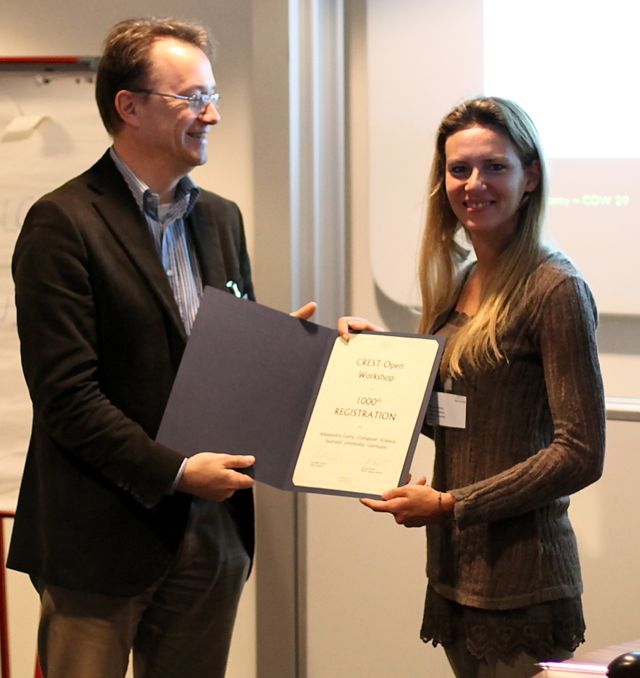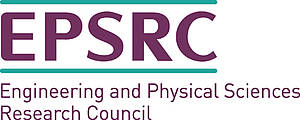The 29th CREST Open Workshop
Software Redundancy
Date: 18 -19 November 2013
Venue: Engineering Front Executive Suite, Roberts Building, UCL (Directions, or 'C5' on the map here, or Find it on Google maps.)
Overview:
Redundancy, that is, expressing the same thing several times, is a recurrent theme in software. Redundancy in itself is neither good nor bad -- it is a property that software artefacts may, or may not, possess.
Good redundancy is redundancy that helps detect errors in software. For instance, a program and its specification may be considered redundant -- if the two disagree, one is likely wrong. Bad redundancy is redundancy that may lead to errors or insufficient performance. For example, software bloat causes programs to run slower or to use more memory. Other types of redundancy may or may not be good or bad. For example, duplicated code can cause maintenance problems but is often accepted as it is.
Some disciplines aim at introducing redundancy, others at exploiting it, and others still at avoiding it. This CREST Open Workshop is to bring representatives of all disciplines that deal with, or can profit from dealing with, redundancy together.
Programme: (Downloadable Programme in PDF)
+++++++++18 November 2013 – DAY 1+++++++++
10:00 Arrival, Coffee and Pastries
10:30 Welcome and Introductions ( Videos: 240p, 360p)
Jens Krinke, CREST Centre, SSE Group, Department of Computer Science, UCL
11:00 Automatic Recovery from Runtime Failures (Slides, Videos: 240p, 360p)
Alessandra Gorla, Computer Science, Saarland University, Germany
11:45 Redundancy in Manual System Testing - Blessing and Curse (Slides, Videos: 240p, 360p)
Benedikt Hauptmann, Institut für Informatik, Technische Universität München, Germany
12:30 Sandwich Lunch at the venue
13:30 Software design diversity - from conceptual modelling to practical implementations (Slides, Videos: 240p, 360p)
Peter Popov, Centre for Software Reliability, City University London, UK
14:15 Software-based Fault-Tolerance - Mission (Im)possible? (Slides, Videos: 240p, 360p)
Peter Ulbrich, Department of Computer Science 4, Friedrich-Alexander-Universität Erlangen-Nürnberg, Germany
15:00 Refreshments
15:30 In the tension of Software redundancy and variability (Slides, Videos: 240p, 360p)
Sandro Schulze, Institut für Softwaretechnik und Fahrzeuginformatik, TU Braunschweig, Germany
16:15 Bio-Inspired Mechanisms for Coordinating Multiple Instances of a Service Feature in Dynamic Software Product Lines (Slides, Videos: 240p, 360p)
Jaejoon Lee, School of Computing & Communications, Lancaster University, UK
17:00 Feature Reduction
Sarunas Marciuska, Free University of Bozen - Bolzano, Italy
17:45 Wrap up
18:00 Close
+++++++++19 November 2013 – Day 2+++++++++
9:00 On the Naturalness Software: A Research Vision (Slides, Videos: 240p, 360p)
Earl Barr, CREST Centre, SSE Group, Department of Computer Science, UCL, UK
9:45 Redundancy and/or abstraction
Friedrich Steimann, Fakultät Mathematik und Informatik, FernUni Hagen, Germany
10:30 Refreshments
11:00 Diversity in Test Suite Opimization (Slides)
Annibale Panichella, Department of Mathematics and Informatics, University of Salerno, Italy
11:45 Lightweight Language-Independent Program Slicing (Slides, Videos: 240p, 360p)
Jens Krinke, CREST Centre, SSE Group, Department of Computer Science, UCL, UK
12:30 Sandwich lunch at the venue
13:30 Listening to big data: Philately will get you everywhere (Slides, Videos: 240p, 360p)
Michael Godfrey, University of Waterloo, Canada
14:15 Searching for better configurations: A rigorous approach to clone evaluation (Slides, Videos: 240p, 360p)
Yue Jia, CREST Centre, SSE Group, Department of Computer Science, UCL, UK
15:00 Refreshments
15:30 Fault Detection and Localisation in Reduced Test Suites (Slides, Videos: 240p, 360p)
Árpád Beszédes, University of Szeged, Hungary
16:15 Exploiting Redundant Test Cases in Fault Localisation: Good or Bad? (Slides, Videos: 240p, 360p)
Alexandre Perez, Faculdade de Engenharia da Universidade do Porto, Portugal
17:00 Wrap up
17:30 Close
Photos:









































This workshop is supported by the following sponsors:
 |   |
|---|
Registered Attendees:
- Earl Barr, CREST Centre, SSE Group, Department of Computer Science, UCL, UK
- Árpád Beszédes, University of Szeged, Hungary
- David Clark, CREST Centre, SSE Group, Department of Computer Science, UCL, UK
- Steve Counsel, Information Systems and Computing, Brunel University, UK
- Haitao Dan, CREST Centre, SSE Group, Department of Computer Science, UCL, UK
- Sigrid Eldh, Ericsson AM & Karlstad University, Sweden
- Michael Godfrey, University of Waterloo, Canada
- Alberto Goffi, University of Lugano, Switzerland
- Nicolas Gold, CREST Centre, SSE Group, Department of Computer Science, UCL, UK
- Alessandra Gorla, Computer Science, Saarland University, Germany
- Mark Harman, CREST Centre, SSE Group, Department of Computer Science, UCL, UK
- Benedikt Hauptmann, Institut für Informatik, Technische Universität München, Germany
- Iman Hemati Moghadam, CREST Centre, SSE Group, Department of Computer Science, UCL, UK
- Syed Islam, CREST Centre, SSE Group, Department of Computer Science, UCL, UK
- Yue Jia, CREST Centre, SSE Group, Department of Computer Science, UCL, UK
- Derek Jones, Knowledge Software, UK
- Jens Krinke, CREST Centre, SSE Group, Department of Computer Science, UCL, UK
- Bill Langdon, CREST Centre, SSE Group, Department of Computer Science, UCL, UK
- Jaejoon Lee, School of Computing & Communications, Lancaster University, UK
- Lingbo Li, CREST Centre, SSE Group, Department of Computer Science, UCL, UK
- Sarunas Marciuska, Free University of Bozen - Bolzano, Italy
- Andrea Mattavelli, University of Lugano, Switzerland
- Annibale Panichella, Department of Mathematics and Informatics, University of Salerno, Italy
- Alexandre Perez, Faculdade de Engenharia da Universidade do Porto, Portugal
- Justyna Petke, CREST Centre, SSE Group, Department of Computer Science, UCL, UK
- Federica Sarro, CREST Centre, SSE Group, Department of Computer Science, UCL, UK
- Sandro Schulze, Institut für Softwaretechnik und Fahrzeuginformatik, TU Braunschweig, Germany
- Thomas Shippey, University of Hertfordshire, UK
- Friedrich Steimann, Fakultät Mathematik und Informatik, FernUni Hagen, Germany
- Peter Ulbrich, Department of Computer Science 4, Friedrich-Alexander-Universität Erlangen-Nürnberg, Germany
- Herbert Wiklicky, Department of Computing, Imperial College London, UK
- Shin Yoo, CREST Centre, SSE Group, Department of Computer Science, UCL, UK
